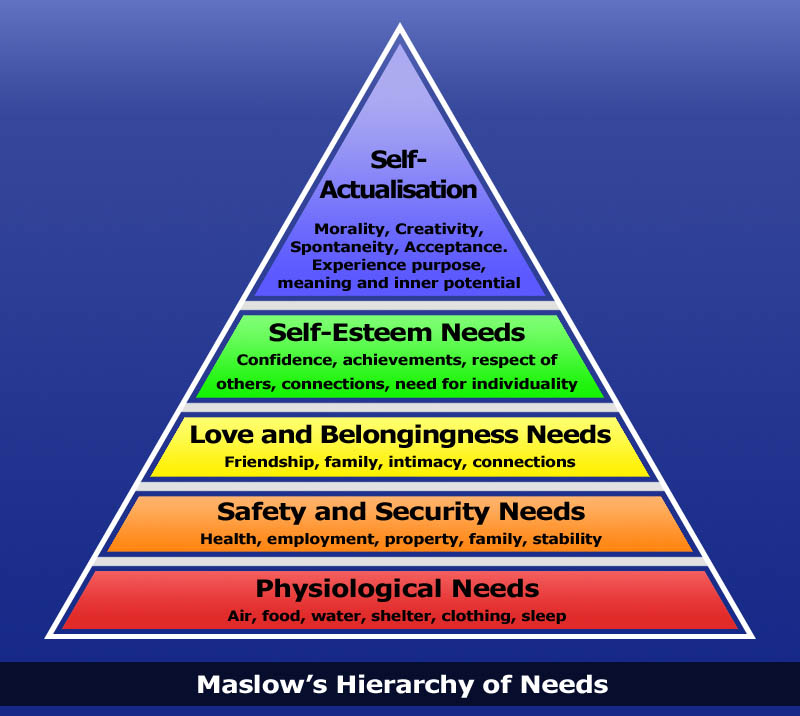Part Four: How is Each Person in the Marriage Affected by Stress?
Each marriage has different stresses that may affect the marriage. Depending on the people and the situations in the marriage, each person is affected by stress differently.
When my husband and I had our first child, we found that there was a lot of new stress that occurred in the relationship. We were learning to take care of another human, our child, and it was something different than we have ever experience. We dealt with this stress differently. Being the mother, I was extremely responsive to the needs and wants as our child grew, though it did bring stress into my life. I felt overwhelmed at tired all the time. I talked with my husband about this stress I was feeling in my life. I shared that it was tiring, exhausting, and I didn’t have time to do all the things I needed to get done (we were both in school during the time). My husband was not only dealing with the stress of a new child but also his wife was spending a lot of time with their child (which is how it is suppose to be, but it is a difficult change for many men). He closed off a bit, reacting to the stress in a different way. He did his homework, quietly, and would watch our child when I needed to do homework. We dealt with stress differently, and while it’s not a bad thing to deal with stress differently, I am sure there were ways we could have worked together to better understand one another and our stress.
Simply put, men and women deal with situation, especially stress, differently. Women want to talk things out, and through that they are relieved of stress, while men want to figure it out and find an answer immediately.
This video shows a perfect example of how men and women, when stress, may act differently. But this isn’t all. In recent studies, there has been findings that have to do with each partner in a marriage relationship and they react to the stress differently.
Karney mentions how stress tends to affect the women in the marriages.
“Over the early years of marriage, we found that wives' marital satisfaction tends to covary negatively with the level of acute stress they are experiencing outside of the relationship. That is, wives are less happy than usual after periods of relatively high stress, and more happy than usual after periods of relatively low stress. But the strength of this relationship depends on the broader set of chronic circumstances that wives are facing. Acute stress in the context of chronic stress (i.e., lasting health problems, financial strain, unsatisfying or intermittent employment) is especially powerfully associated with changes in wives' marital satisfaction. In the context of low chronic stress, however, fluctuations in acute stress are not significantly associated with changes in marital satisfaction at all. Couples whose lives are generally good and rich in support may endure ups and downs in acute stress without their marital satisfaction being affected” (Karney, p. 3).
The final point that Karney (2014) mentioned in his article was the difference between parent and non-parents and how work related stress affects them and the overall family.
In some situations more work is bad for the couple’s relationship.
Non-Parent homes showed the following:
“The demands of work are often described as toxic to family life. Indeed they are toxic for many working couples, those for whom each hour spent at work drains away time and energy, leaving less behind to devote toward maintaining the relationship” (Karney, p. 3-4). In other situations, it actually might be good for the couples. “We reasoned that high demands at work might benefit some couples, as long as those couples possessed sufficient resources for maintaining their relationships when work was done.... These were the couples with adequate resources to manage the demands of work and of their relationships at the same time. Fulfilled by their jobs, long hours for them represented time well spent and an investment in a promising future. In the absence of other demanding roles to fill, they returned from work capable of spending time with partners who appreciated their devotion to their careers. As might be expected, these effects were stronger for husbands' work than for wives'.” (Karney, p. 4).
When a couple does not have children, it appears that women are happy and fulfilled by their own and their husband’s job, no matter what the hours. But, that appears to change when the couple does have children.
“The parents' data told a totally different story. Whereas childless wives were more satisfied in marriages to husbands who spent long hours in jobs that fulfilled them, mothers were significantly less satisfied during periods when their husbands had a higher workload, and this was especially true when husbands were satisfied with their jobs” (Karney, p 4).
Having a child of my own (only one, I can only imagine with more!), I know that it is hard and stressful when my husband has long hours at work. It is difficult to go all day long with no break when acting on the needs and constant wants of a child. It’s exhausting as any stay at home parent would know. Having the support and love a the spouse there makes it easier and the burden is lifted. Karney (2013) mentions, too, the difference he was able to discover:
“To a wife without children, time her husband spends at work is time spent investing their shared financial future. To a wife with children, however, that same time is time that she is left alone taking care of those children, and this issue is rather more salient than the distant promise of more money in the bank years from now. The parents, juggling not only work and relationship but also the additional demands of caring for their children, had fewer resources left over to maintain their relationships effectively during periods of high workload” (Karney, p 4).
It really does make sense that, as men and women are different, they tend to react to stress in their lives differently. But, Brock and Lawrence found that there could be some things that could help a marriage and relationship to be less stressful and in hope to create resilience for marriages and families:
1. “Higher wages, more job security, and access to health care-to the extent that these policies would reduce the stress of modern life-would also promote the stability and quality of relationships, even without targeting relationships directly.
2. “Couples might be encouraged to recognize the ways that stress affects their relationships and assisted in developing communication patterns and concrete resources to help them cope with stress effectively when it arises.
3. “Husbands who experienced greater escalation in role strain over the first 3 years of marriage demonstrated steeper declines in marital satisfaction compared with husbands experiencing more stable role strain over time” (Brock and Lawrence, Discussion Section).
4. “Relative escalation of wives’ role strain did not account for changes in their own marital satisfaction” (Brock and Lawrence, Discussion Section).
5. “Increases in husband’s role strain might be beneficial for wives’ marital satisfaction” (Brock, Lawrence, Discussion section).
6. “Husbands experienced greater marital decline when they also experienced great escalations in role strain” (Brock, Lawrence, Discussion section).
For my understanding, I was able to see that in some instances stress in marriages actually can be a good thing. Of course, that depends on the situation and the people who are in the situation. This study concluded that wives tend to have more marital satisfaction when their husbands may have role strain in the relationship. Another main point was that wives tend to be just as satisfied with their marriages with or without stress. Husbands feel less marital satisfaction when there is more stress in the marriage.
Look for our final Blog Post on Stress in Marriage:
Part #5: How to Cope with Stress in Marriage.
Reference Page:
Brock, Rebecca L.; Lawrence, Ericka (2008). A Longitudinal Investigation of Stress Spillover in Marriage: Does Spousal Support Adequacy Buffer the Effects? Retrieved from: http://www.ncbi.nlm.nih.gov/pmc/articles/PMC2366194/
Karney, Benjamin. (2014). Stress is Bad for Couples, Right? Retrieved from:http://www.ncfr.org/ncfr-report/focus/couples/stress-bad-couples-right
Hill, R. (1949). Families under stress. New York: Harper & Row.
















